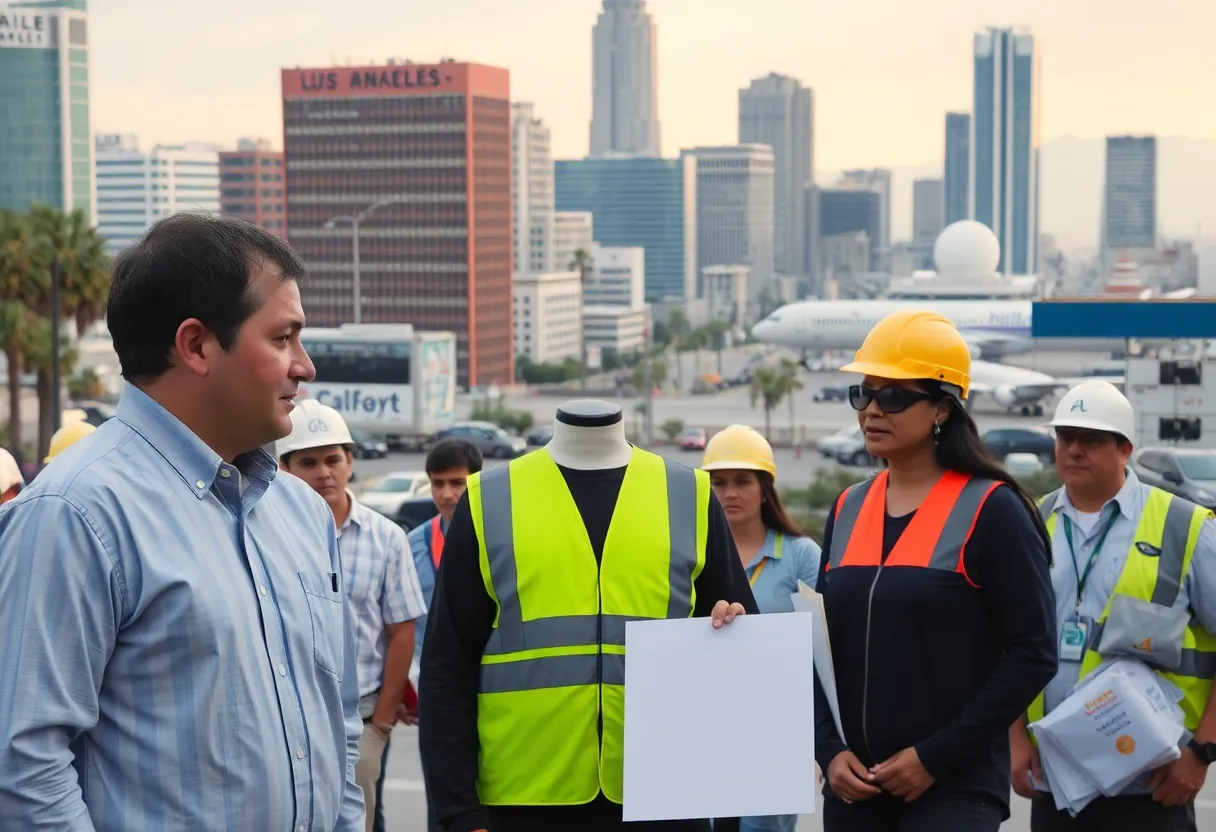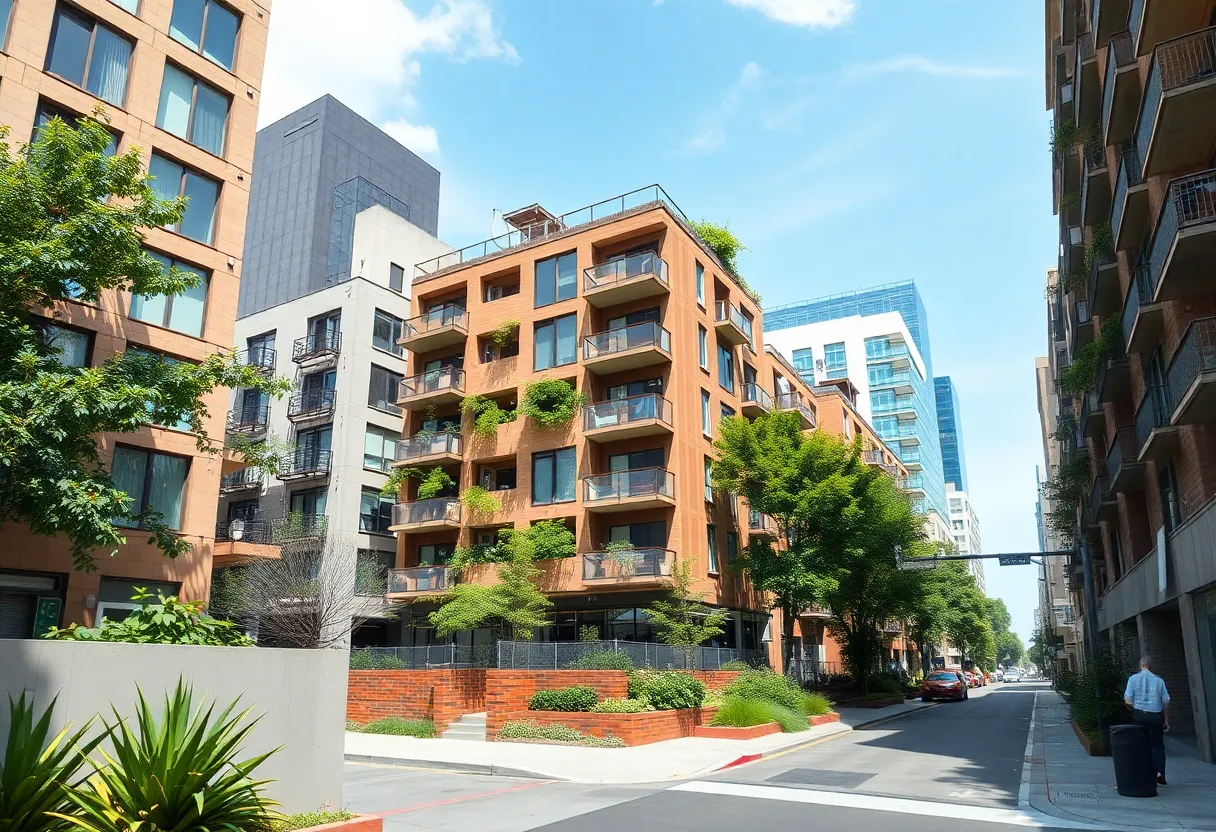News Summary
Los Angeles has passed a contentious ordinance establishing a minimum wage of $30 for hotel and airport workers by 2028. The decision has led to competing ballot propositions aimed at repealing the wage increase and even the local business tax, raising concerns about the city’s financial stability ahead of the 2028 Olympics. City leaders are worried that these measures may harm essential services while the hospitality union advocates for higher wages. Ongoing debates within California’s proposition politics may shape future wage policies for other cities facing similar challenges.
Los Angeles is witnessing a contentious debate surrounding a newly passed ordinance aimed at establishing a minimum hourly wage of $30 for hotel and airport workers by 2028. This wage increase, yet to take effect, has led to competing ballot propositions that could significantly impact the city’s fiscal landscape as it prepares for the highly anticipated Olympic Games in 2028.
A business coalition, reportedly backed by major airlines Delta and United, is mobilizing efforts to gather signatures to repeal the newly enacted wage increase. The rise in minimum wage has sparked concerns among local officials about the potential repercussions on the city’s finances, especially in light of the preparations for the upcoming Olympics.
Amidst this backdrop, another group of business interests proposes a separate ballot initiative aimed at repealing the city’s business tax, which generated over $700 million in revenue last year. Advocates, including the L.A. Area Chamber of Commerce, argue that the business tax repeal is a necessary step in response to the rise in wages for hospitality and tourism workers. However, this move has raised alarms about possible cuts to city services should the measure pass.
City leaders, including Mayor Karen Bass and Councilmember Tim McOsker, are expressing apprehensions that the competing ballot measures could jeopardize the city’s financial stability. They emphasize the importance of collaborative efforts to bridge the gaps between divergent interest groups in Los Angeles, given the intricate web of fiscal challenges ahead.
Debates also center on the Los Angeles Cost of Living Relief Initiative, which critics warn could lead to adverse effects on city services. This initiative is positioned as a response to rising living costs associated with wage increases in the hospitality sector. Additionally, some local officials are sounding alarms over a proposition that would require voter approval for new developments related to hotels and event centers, which they believe could delay crucial projects essential for the Olympics.
In tandem with these developments, the hospitality union Unite Here Local 11 is advocating for supplementary measures, including a citywide minimum wage increase. City officials, including Paul Krekorian, have cautioned that the union’s proposition could compel the city into costly special elections for smaller projects, further complicating Olympic preparations.
The landscape of California’s proposition politics has historically provided leverage for negotiations, with competing measures often resulting in voter confusion. This climate of uncertainty is echoed in ongoing litigation within the hospitality sector. The Santa Monica Proper hotel is currently facing a class-action lawsuit, with allegations of failing to pay employees in accordance with the Santa Monica Hotel Worker Living Wage Ordinance. Plaintiffs claim that the hotel has violated wage regulations, creating significant disparities between what guests pay and the wages received by workers.
This ordinance stipulates a gradual increase in minimum wage rates, currently beginning at $19.73 and set to rise to $21.01 over the next two years. Furthermore, the plaintiffs in the lawsuit are seeking compensation through back pay claims, daily fines, and court orders for compliance audits of payroll practices.
The ongoing debates surrounding wage hikes and fiscal stability are critical for the future of California’s hospitality industry, particularly as the state looks forward to major events such as the FIFA World Cup and the Olympics. Political and business leaders are closely monitoring the situation in Los Angeles, as outcomes related to wage policy here could set trends for other cities grappling with similar challenges.
Deeper Dive: News & Info About This Topic
HERE Resources
Los Angeles Faces Financial Crisis Over Wage Proposals
Additional Resources
- Los Angeles Times: Santa Monica Proper Hotel Accused of Wage Violations
- LAist: LA Passes $30 Minimum Wage Law
- New York Times: LA’s Minimum Wage Increase
- CBS News: Hollywood Hotel Owner on Wage Increase
- Wikipedia: Minimum Wage

Author: STAFF HERE HOLLYWOOD
The Hollywood Staff Writer represents the experienced team at HEREHollywood.com, your go-to source for actionable local news and information in Hollywood, Los Angeles County, and beyond. Specializing in "news you can use," we cover essential topics like product reviews for personal and business needs, local business directories, politics, real estate trends, neighborhood insights, and state news affecting the area—with deep expertise drawn from years of dedicated reporting and strong community input, including local press releases and business updates. We deliver top reporting on high-value events such as the Hollywood Bowl summer concerts, the Hollywood Christmas Parade, film premieres at TCL Chinese Theatre, and festivals at the Magic Castle. Our coverage extends to key organizations like the Hollywood Chamber of Commerce and Visit Hollywood, plus leading businesses in entertainment, dining, and tourism that define the local economy. As part of the broader HERE network, including HERELosAngeles.com, HEREBeverlyHills.com, HEREAnaheim.com, and HEREHuntingtonBeach.com, we provide comprehensive, credible insights into Southern California's dynamic landscape.



